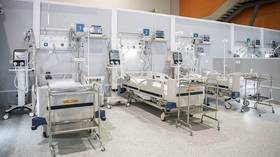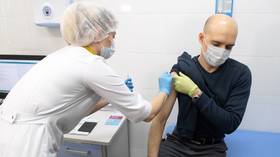Artificial intelligence diagnosing Moscow patients TEN TIMES faster than normal, dramatically helping busy doctors during pandemic

Since autumn, artificial intelligence has been used to make around 430,000 preliminary diagnoses in Moscow's medical facilities, with newly developed algorithms helping identify the majority of citizens' medical problems.
The latest technology speeds up the illness identification process by analysing information inputted into a computer by a doctor.
“The algorithm works as follows,” explained Yulia Urozhaeva, a Moscow official focused on social development. “Based on patient complaints, the tool selects the three most likely diagnoses out of 265 groups from the current list of the international classification of diseases.”
Also on rt.com Russian authorities to investigate after forged negative Covid-19 test certificates found on sale for just $33 eachAccording to Urozhaeva, a doctor then reviews the options proposed to them by the technology, before deciding whether they agree. After that, the patient is sent for additional examinations for confirmation, before medical professionals offer a solution.
Using this method, Moscow's busy medics are saving a lot of time, their most precious resource. Artificial intelligence, which helps during 90% of all visits to clinics, now means that doctors can diagnose illnesses around 10 times faster than before.
In the midst of the Covid-19 crisis, Moscow's doctors are busier than ever before. The city has borne the brunt of the pandemic within Russia, recording over a quarter (660,073) cases of the overall 2,515,009 confirmed. The capital has just 10 percent of the entire nation's population.
The technology was used in every single one of the city’s medical facilities this autumn, and is just one of many planned advancements. Earlier this year, Deputy Mayor Anastasia Rakova announced that AI would soon be involved in 10 fields of different medical research.
“We are working on a number of new areas of automated processing of research, including magnetic resonance imaging and computed tomography of the brain, x-rays of the musculoskeletal system and abdominal organs, and others,” she said.
Like this story? Share it with a friend!














